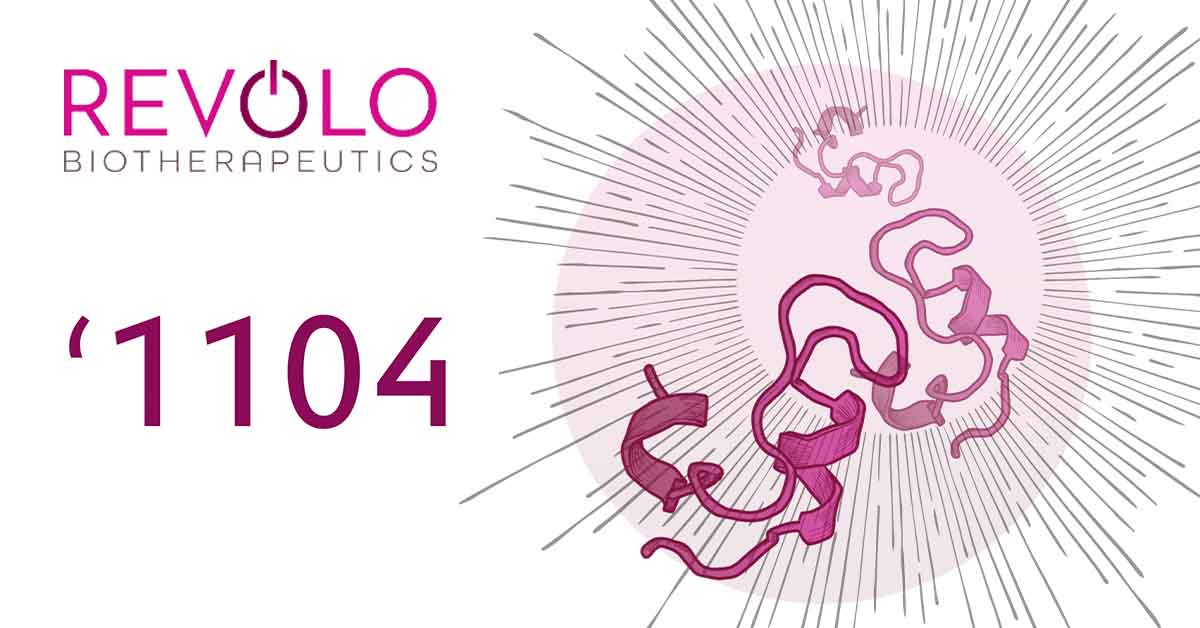Yesterday, Revolo Biotherapeutics — a Cambridge UK-based company seeking to reset the immune system to achieve remission for patients with auto-immune and allergic diseases — announced they had presented new preclinical data at this year’s AAAAI annual meeting in San Antonio.
Their data demonstrate the long-lasting effect of ‘1104 in a food allergy mouse model including the reduction of anti-inflammatory markers and improvements in clinical scores that highlight its potential as an allergen-agnostic therapeutic for food allergies.
‘1104 is a first-in-class peptide derived from a natural immune-regulatory protein that is involved in resetting the immune system. Revolo Bio is advancing ‘1104 through two Phase 2 trials: one in patients with eosinophilic esophagitis (EoE) and one in patients with allergen sensitivity while exploring its potential for other allergic diseases.
Here is a video describing how ‘1104 works:
Said Jonathan Rigby, CEO of Revolo:
We are very pleased to continue to demonstrate the positive effect of ‘1104 in multiple allergic disease settings, including now in food allergy. The ability of ‘1104 to induce a long-term effect both at prophylactic and therapeutic doses highlights its potential as a much-needed option for food allergy patients who currently rely on chronic treatments that often lead to immunosuppression. We look forward to exploring the potential clinical utility of ‘1104 in food allergy as we advance our ongoing Phase 2a clinical studies in allergen sensitivity and eosinophilic esophagitis (EoE), for which we expect results in Q2 2023.
Key data highlights:
- ‘1104 attenuates the early anaphylactic allergic response in a model of ovalbumin-driven food allergy.
- The effect, after both prophylactic and therapeutic dosing, is consistent across “clinical” symptoms (anaphylaxis score and body temperature) and relevant serum biomarkers of inflammation, such as key cytokines and chemokines (mMCP-1, OVA-IgE, IL-4, IL-5, IL-13, and Eotaxin).
- Despite a short pharmacokinetic (PK) plasma half-life, ‘1104 shows a long pharmacodynamic (PD) effect of 13 days in this early allergic response model, which is consistent with the effect observed in previous models of late allergic response.
‘1104 was able to reduce anaphylaxis (symptom score, hypothermia), attenuate the increase in cytokines and IgE, and limit the activation of mast cells. These data indicate a long-term suppression of indices of anaphylaxis in this model.






